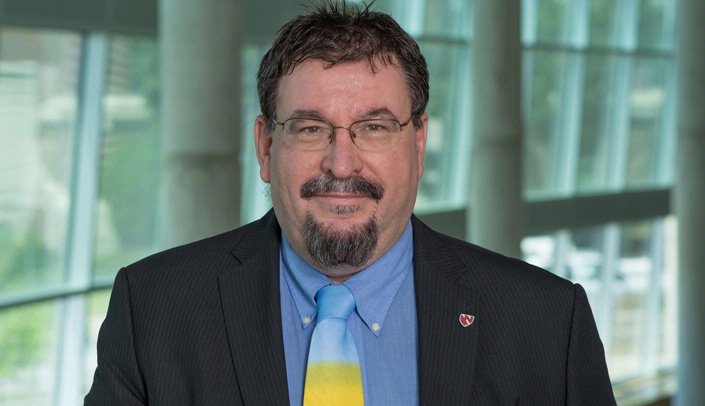Karoly Mirnics, M.D., Ph.D., director of the Munroe-Meyer Institute at UNMC, will discuss the ethics of genetics at the next Omaha Science Cafe at 7 p.m. on Jan. 9 at the Slowdown, 729 N. 14th St.
Dr. Mirnics is the Hattie B. Munroe Professor of Psychiatry, Biochemistry & Molecular Biology at UNMC. A native of Yugoslavia (now called Serbia), he obtained his medical degree from the University of Novi Sad School of Medicine in 1986 and his doctorate from Semmelweis University in Budapest, Hungary. He completed his postdoctoral fellowship at the University of Pittsburgh.
Dr. Mirnics established his own laboratory in 2000 at the University of Pittsburgh, where he rose to the rank of associate professor in 2006. He then moved his laboratory to Vanderbilt University in Nashville, Tenn. In 2010, he was named the James G. Blakemore Professor of Psychiatry, and served as the departmental vice chair for research and associate director of the Vanderbilt Kennedy Center.
Dr. Mirnics has a broad background in molecular neurobiology of brain diseases, with more than 20 years of experience in various molecular biology techniques. His research group is actively pursuing projects that include transcriptome changes across human brain diseases, animal models of neurodevelopmental and psychiatric disorders, effects of maternal immune activation and environment on gene expression, and neuroprotection by activity.
He pioneered multiple molecular biology tools and methods in neurosciences and has collaborated with scientists around the world.
This Science Cafe is in partnership with the Bemis Center for Contemporary Arts and its current exhibition, “Monarchs: Brown and Native Contemporary Artists in the Path of the Butterfly.”
Science Cafes involve a face-to-face conversation with a scientist about current science topics. They are open to everyone (21 and older) and take place in casual settings like pubs and coffeehouses. Each meeting is organized around an interesting topic of conversation. A scientist gives a brief presentation followed by a Q-and-A period.
Pizza will be provided for the first 50 people. For more information about Science Cafes, click here.
